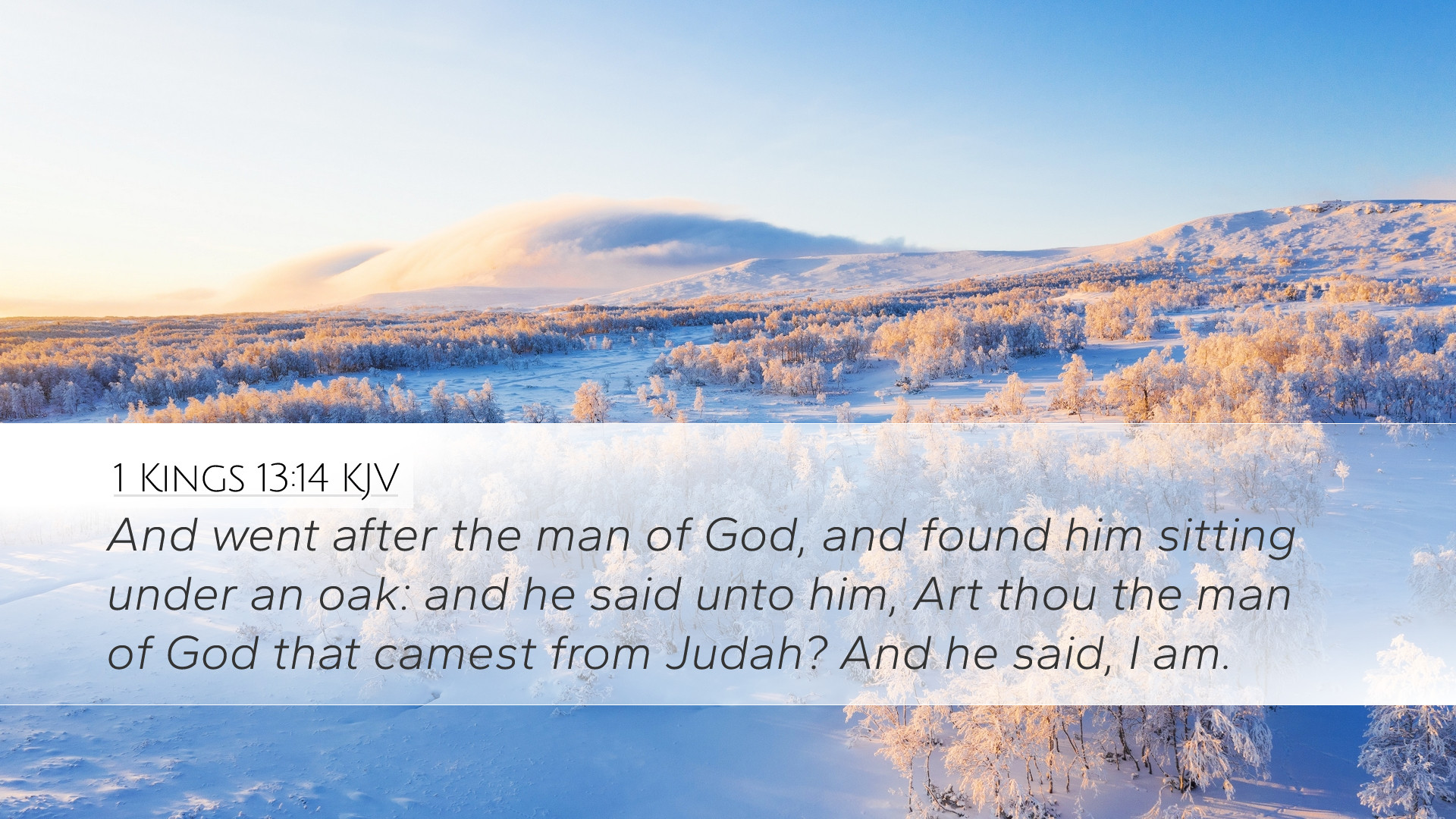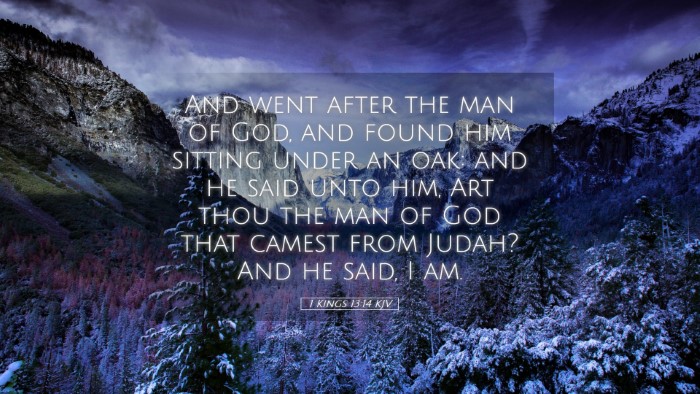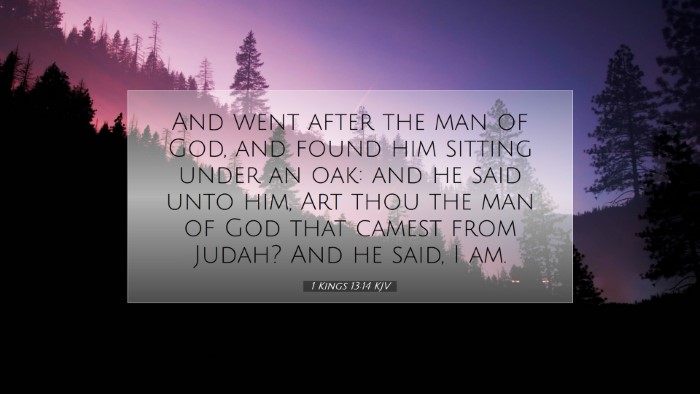Commentary on 1 Kings 13:14
1 Kings 13:14 presents a profound narrative that captures the tension between prophecy and obedience, showcasing the dire consequences of straying from God's command. The context of this verse involves a prophet from Judah who was sent to deliver God's message to King Jeroboam, who had introduced idolatry in Israel. Here, we delve into the insights of prominent commentators like Matthew Henry, Albert Barnes, and Adam Clarke to provide a rich understanding suitable for pastors, students, theologians, and Bible scholars.
Contextual Overview
The earlier parts of 1 Kings 13 set the stage for a pivotal confrontation between the prophet and the forces of idolatry in Israel. The prophet's mission is straightforward: to proclaim God's judgment against Jeroboam's altar at Bethel.
Key Themes
- Prophetic Authority: The prophet's announcement of judgment is authoritative, rooted in God's direct command.
- Obedience and Disobedience: The subsequent events highlight the crucial nature of obedience to God’s directives.
- The Influence of Compromise: The narrative warns against the dangers of yielding to personal desires over divine instructions.
Insights from Matthew Henry
Matthew Henry, in his comprehensive commentary, emphasizes the solemn duty of the prophet in 1 Kings 13:14. He remarks on the prophet's journey to the site where he encounters the old prophet, stressing the initial righteousness of the young prophet's mission.
- Spiritual Vigilance: Henry notes that spiritual vigilance is essential, implying that even the most dedicated can fall prey to deception.
- Failure of the Old Prophet: He comments on the role of the older prophet, suggesting that intercessors or those with prior knowledge of God should serve as guardians against error rather than leading others astray.
Insights from Albert Barnes
Albert Barnes provides additional depth to the understanding of this passage by illustrating the significance of the journey the prophet undertakes. He interprets the resulting actions as a potent reminder of the dangers involved in disregarding God’s commands.
- God’s Command Versus Personal Inclination: Barnes underscores the theme of obeying God’s explicit commands without exception, illustrating the dire outcomes when such commands are compromised.
- The Role of Deception: He highlights the elder prophet's deception and how easily the young prophet’s resolve was swayed, illustrating the theme of spiritual integrity.
Insights from Adam Clarke
Adam Clarke draws on his extensive knowledge of biblical texts and tradition to expound on the implications of 1 Kings 13:14. His commentary adds a significant layer regarding the broader implications of prophetic actions.
- The Severity of Consequences: Clarke notes that the consequences faced by the young prophet serve as a strong warning against veering from God’s ordained path.
- The Importance of Sound Counsel: He emphasizes the critical need for sound spiritual counsel and the perils of relying on human advice contrary to divine revelation.
Theological Reflection
Building on the insights from these commentators, we can derive several theological reflections from 1 Kings 13:14:
- The Nature of Divine Call: God’s call is specific, and deviation from it invites spiritual peril.
- Community of Believers: The narrative serves as a reminder of the importance of accountability within the community of faith.
- Resistance to Temptation: It is essential for believers, especially leaders, to exercise discernment and resist worldly temptations that seek to undermine their mission.
Practical Applications
The lessons gleaned from 1 Kings 13:14 can be translated into practice for contemporary believers and leaders:
- Commitment to God’s Word: Individuals are encouraged to maintain a steadfast commitment to Scripture, allowing God's word to guide their actions and decisions.
- Mentorship and Accountability: The necessity of surrounding oneself with wise counsel and mentors who align with God's will, and who can provide wise guidance and encouragement.
- Fostering Spiritual Discernment: Encouragement for personal and communal prayer that seeks discernment and protection against spiritual deception.
Conclusion
1 Kings 13:14 encapsulates vital lessons in prophetic integrity, the necessity of obedience, and the dangers of compromise. The insights derived from the commentaries of Matthew Henry, Albert Barnes, and Adam Clarke collectively enhance our understanding of this passage, encouraging a thoughtful, vigilant approach to our relationship with God and our ministry in today's world. As spiritual leaders and scholars, may we strive to heed the wisdom of these texts, ever mindful of our responsibility to uphold the truth amidst a world rife with conflicting messages.


